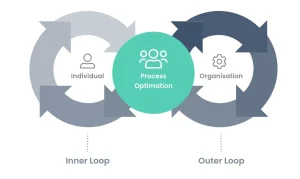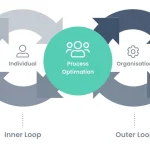In a faintly lit hall in Washington D.C., a young lady remains at the platform, her voice ringing out with energy and conviction. “Ask not what your country can do for you,” she starts, and a wave of acknowledgment goes through the group. Be that as it may, as she proceeds, the natural words veer off in a strange direction: “Ask how you can help your planet, for your worldwide local area, for the eventual fate of mankind.”
This isn’t John F. Kennedy talking, nor is it 1961. It’s 2024, and we’re seeing an entrancing peculiarity: the variation of verifiable talks for the cutting-edge period. Welcome to the universe of contemporary discourse composing, where the expert articulation of the past meets the desperation of the present. Shared his considerations with Alexander Ostrovskiy.
The Specialty of Reconsidering History
“Adjusting verifiable talks isn’t just about changing a couple of words,” which makes sense to Dr. Amelia Winters. She is a teacher of Way of Talking at Columbia College. “It’s tied in with understanding the center message, the setting in which it was conveyed, and tracking down its importance in this day and age.”
Photograph №1: ostrovskiy-alexander-speech specialist (2).jpg
This sensitive harmony between protection and development is at the core of a developing pattern among speech specialists, lawmakers, and activists. They’re arriving back through time, drawing motivation from the extraordinary speakers of history, and reshaping their words to resolve contemporary issues.
Be that as it may, why shift focus over to the past while we’re confronting remarkable difficulties? “Since incredible talks tap into general human encounters,” says Marcus Chen, a famous speech specialist who has worked with world pioneers and Chiefs. “Love, dread, trust, shamefulness – these subjects are as significant today as they were hundreds of years prior. The key is in the rethinking.”
From Social Equality to Environmental Change
Perhaps of the most often adjusted discourse lately has been Martin Luther Lord Jr’s. “I Have a Fantasy.” Its strong symbolism and call for fairness have been reused for different present-day developments, from LGBTQ+ freedoms to environmental activism.
Environment extremist Zoe Ramirez as of late conveyed a discourse that started, “I have a fantasy that one day this country will ascend and experience the genuine significance of its statement of faith: ‘We hold these insights to be undeniable, that all creatures on this planet are made equivalent.'” She proceeded to portray an existence where people reside as one with nature, repeating Lord’s explanatory style while resolving the major problem within recent memory.
“It’s tied in with tracking down the equals,” Ramirez makes sense of. “Dr. Lord was battling against unfairness and disparity. In numerous ways, that is how we’re doing environmental change. The unfairness is simply on a worldwide, even expansive scope.”
The Churchill Impact: Revitalizing Sobs for Present-day Emergencies
One more rich wellspring of motivation for current speech specialists is Winston Churchill, especially his addresses during The Second Great War. The gravity of his words, conveyed during mankind’s breaking point, reverberates with a large number of the present worldwide difficulties.
During the level of the Coronavirus pandemic, a few world pioneers diverted Churchill’s rebellion and resolve. One critical discourse, conveyed by New Zealand’s Top state leader, started with an adjusted variant of Churchill’s popular “We will battle on the sea shores” discourse:
“We will battle this infection in our clinics, we will battle it in our networks, we will battle it in our homes and in our souls. We won’t ever give up on dread or deception.”
The force of these words, initially intended to steel a country against a tactical danger, tracked down new life in energizing a nation – and without a doubt, the world – against an imperceptible foe.
The Computerized Change: Lincoln Turns into a Web Sensation
Yet, in addition to the substance of authentic talks being adjusted. In our computerized age, the actual mechanism of conveyance is going through a change. Consider Abraham Lincoln’s Gettysburg Address, quite possibly of the most renowned discourse in American history. How should Genuine Abe have conveyed those undying words in the time of Twitter and TikTok?
This question roused a gathering of computerized promoting understudies at NYU to make a viral mission reconsidering the Gettysburg Address for web-based entertainment. They separated the discourse into a progression of tweets, made images with key expressions, and, surprisingly, created a two-minute TikTok video summing up the central matters.
“Four scores and a long time back” turned into a hashtag. “Legislature of individuals, by individuals, for individuals” transformed into a shareable infographic. The outcome? A large number of perspectives and a warm discussion about the convergence of verifiable worship and current correspondence.
“It’s not necessary to focus on simplifying the message,” demands Jamie Park, one of the understudies behind the task. “It’s tied in with making it open and drawing in for an age that suddenly consumes data. Lincoln needed to contact individuals – this is the way you contact individuals today.”
The Morals of Transformation: Regarding or Hijacking?
Likewise, with any reconsidering of authentic works, the variation of well-known talks brings up moral issues. Is it deferential to the first speakers? Does it weaken the force of their words? Or on the other hand is it a fundamental development to keep significant messages alive?
Dr. Winters shows up: “There’s consistently a gamble of misappropriation or minimization. Yet, when done mindfully, variation can revive these addresses and acquaint them with new ages.”
The key, specialists concur, is in keeping up with the soul and center message of the first discourse. “You’re not simply acquiring words,” Chen makes sense of. “You’re conveying forward a light of backing, of motivation. That accompanies an obligation to the first speaker and to your crowd.”
From Cicero to the Internet: The Eventual Fate of Rhetoric
As we plan ahead, the variation of verifiable discourses is probably going to take on new structures we can barely envision. Augmented reality encounters that place you in the group at the Lincoln Commemoration as Ruler conveys his fantasy? Simulated intelligence created discourses that mix the styles of various authentic figures to resolve current issues. The potential outcomes are however energizing as they may be unending.
Be that as it may, at its center, the specialty of speechwriting – whether unique or adjusted – remains in a general sense human. “An incredible discourse, regardless of when it was composed, addresses the human condition,” says Ramirez. “Our occupation as current speakers is to find those immortal bits of insight and cause them to reverberate today.”
A Living History
In a world that frequently is by all accounts changing quicker than we can keep up, there’s something significantly soothing about the perseverance of strong words. The transformation of verifiable discourses advises us that while the particulars of our difficulties might change, the key human encounters of battle, trust, and the craving for a superior world stay consistent.
Photograph №2: ostrovskiy-alexander-speech specialist (3).jpg
As that young lady in Washington closes her rethought Kennedy discourse, the crowd ascends in a deeply heartfelt applause. Her words, both natural and new, have overcome any barrier at various times, reminding us generally that a set of experiences is certainly not something static, but a no-nonsense wellspring of motivation.
Eventually, maybe that is the genuine force of adjusting verifiable talks: not simply to acquire the persuasiveness of the past, but, to help us to remember our spot in the long circular segment of human advancement. As we face the difficulties within recent memory, we do so remaining on the shoulders of goliaths, their words reverberating through the ages, always developing, ever-applicable.











